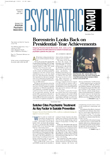Earlier this spring, the National Institutes of Health launched an interactive online course on using human subjects in clinical research. The course, which the National Institute of Mental Health (NIMH) helped to develop, offers CME credit and fulfills the NIMH’s requirement for such a course for all investigators listed on any NIMH grant application.
The course may be accessed on the National Cancer Institute’s Web site at cme.nci.nih.gov. The content of the course, however, addresses more than clinical trials involving patients with cancer; it also covers the use of human subjects within any area of clinical research.
The course was developed by a panel of researchers and ethicists from the National Cancer Institute of in collaboration with the National Heart, Lung, and Blood Institute, the National Institute of Neurological Disorders and Stroke, the National Institute of Allergy and Infectious Diseases, and NIMH. Input was also received from NIH’s Offices of Reports and Analysis, Science Policy, and Biomedical Ethics, as well as from the Food and Drug Administration.
The tutorial is intended for use by those who are involved in the design and conduct of research involving human participants, including biomedical and behavioral researchers, and nurses and data managers who are part of a research team. It presents common concepts, principles, and issues related to protection of human research participants as well as reviewing some of the history leading up to the institutes’ new requirement that all members of a research team receiving NIH funding must complete a course on working with human subjects.
On visiting the site, users are asked to register to access the course. Personally identifying information is used solely for purposes of documenting completion and award of credit. The course offers up to two hours of CME Category I credit of the AMA’s Physicians Recognition Award for physicians or two contact hours of credit for nurses and other allied health professionals.
The course is broken into several interactive modules including case studies and exercises. Users do not have to complete the entire course, or even each module, at one time. Users may bookmark any point within the course and log in to the site later to pick up where they left off. However, once completing an end of module exercise, a user is not allowed to view the module again.
“Human Participant Protections Education for Research Teams” is posted on the Web at cme.nci.nih.gov. ▪
